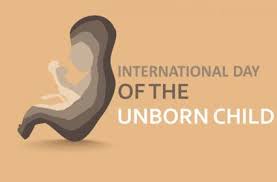
International Unborn Child Day is celebrated every year on March 25 all around the globe. This special day highlights the idea that every child is a treasured gift, representing hope and fresh starts. The observance is all about raising awareness regarding the rights and protection of unborn children.
History and Significance of International Unborn Child Day
Pope John Paul II established the International Day of the Unborn Child, championing the cause of life from its earliest moments. He referred to this day as “a favorable choice in favor of life” and chose March 25 as its official observance. The timing is meaningful, as it falls precisely nine months before Christmas, the day we celebrate the birth of Jesus Christ.
March 25 is also the day we celebrate the Feast of the Annunciation, marking the incredible moment when Jesus was conceived in Mother Mary’s womb. This special occasion highlights the importance of unborn life and encourages communities to acknowledge and protect the rights of the unborn child.
Legal Protection of the Unborn Child
According to Advocate Neeraj Shashwat, an unborn child does not enjoy the same constitutional rights as a born child. However, there are legal provisions to protect the life of an unborn child.
- Abortion Laws: The termination of pregnancy is subject to strict regulations, and unauthorized abortions are considered a crime.
- Recognition of Life: The fetus is recognized as a living being from the third or fourth week after conception when the heart starts beating.
- Article 21 of the Indian Constitution: Defines the right to life, but this right is granted only after birth.
- Mother’s Rights First: The legal rights first extend to the mother, followed by the child after birth.





